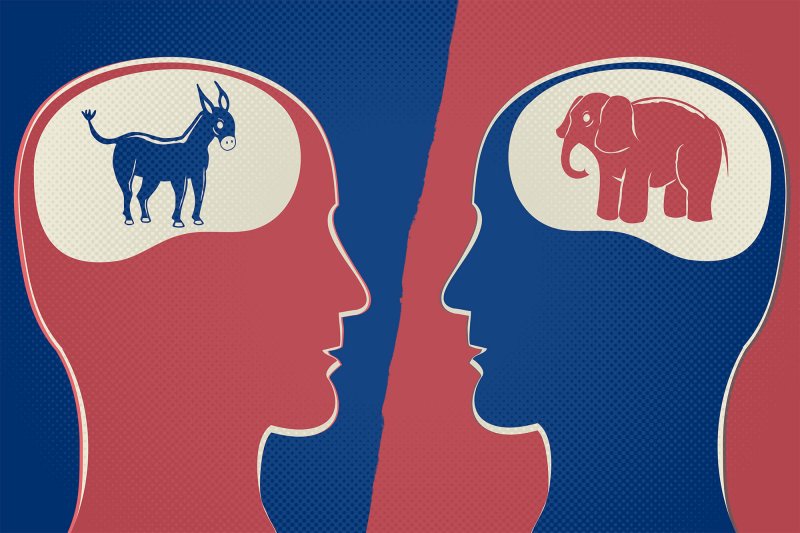Emerging research has begun investigating the neural underpinnings of the biological and psychological differences that drive political ideology, attitudes and actions. Here we explore the neurological roots of politics through conducting a large sample, whole-brain analysis of functional connectivity (FC) across common fMRI tasks.
Our analyses suggest that liberals and conservatives have noticeable and discriminative differences in functional connectivity that can be identified with high accuracy using contemporary artificial intelligence methods and that such analyses complement contemporary models relying on socio-economic and survey-based responses. Functional connectivity signatures from retrieval, empathy, and monetary reward tasks are identified as important and powerful predictors of conservatism, and activations of the amygdala, inferior frontal gyrus, and hippocampus are most strongly associated with political affiliation. Although the direction of causality is unclear, this study suggests that the biological and neurological roots of political behavior run much deeper than previously thought.
…
Discussion and Conclusion
[W]e found that functional connectivity signatures improve the predictive capability of models that utilize demographic and socio-economic indicators like age, education, geographic location, gender, conservative predispositions, and income.
…
We characterized what brain regions were most strongly associated with political ideology.
…
While our analysis suggests that the empathy, reward, and retrieval tasks are the most strongly predictive of political attitude of the tasks we considered, we found that functional connectivity features from all of the tasks including resting state were correlated to political ideology.
…
The subjects in our data were scanned while performing a series of eight tasks, as well as in the resting state. None of these tasks were designed to elicit partisan responses and the resting state scan is particularly interesting because it allows us to test if brain connectivity can predict an individual’s political orientation without any stimulus at all.
…
Although the direction of causality remains unclear – do people’s brains reflect the political orientation they choose or do they choose their political orientation because of their functional brain structure – the evidence here motivates further scrutiny and follow-up analyses into the biological and neurological roots of political behavior.































